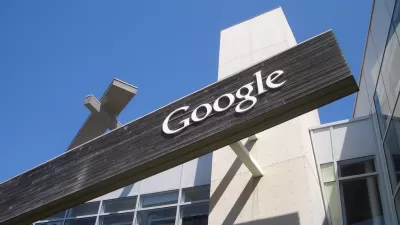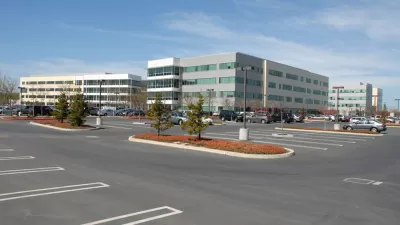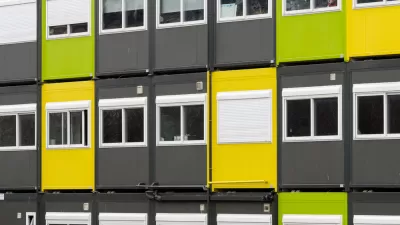Silicon Valley isn't just an industry. It's also a place. Actually, a series of places. The dozen or so cities that make up the valley are increasingly wary of the corporate behemoths that are constantly expanding within their city limits.

While tech lives in the cloud, the people and companies that fuel the tech economy still go to offices every day in real cities. Any city would kill to host the headquarters of Google, right? Sort of.
While Google has surely increased real estate values in its home city of Mountain View, Calif., and made the city more vibrant, local residents and public officials are becoming increasingly less accommodating, especially now that the company has plans to expand and radically redevelop its campus. Tension between the cities of Silicon Valley—which include Palo Alto, Santa Clara, and Cupertino, among others—and the tech giants that call them home have been on the rise.
Increasingly, cities have been forcing companies to provide community benefits, codified in community benefits agreements (CBA's), in order to win approval of their respective city councils. Community benefits can include everything from parks to road-widening to schools to just about anything else a city might want from a deep-pocketed neighbor. Apple's new 2.8-million-square-foot headquarters was approved in 2013 only with major strings attached, to the tune of $100 million. The Mountain View City Council recently rejected an agreement with Google. Google offered the small city $240 million in community benefits; the council balked, approving a project one-quarter the size that Google wanted.
Meanwhile, smaller companies, such as LinkedIn, seem to be having more success as cities try to diversify and not get overwhelmed by their major employers.
"The relationship between a giant, global corporation and a tiny municipality is a strange one, unbalanced and yet in many ways symbiotic. Tech companies are not colonizing cities against their will. Cities need tech money; and tech needs city support — especially as more companies buy more property all over Silicon Valley, planning for greater growth. The result is a redefining of local public-private partnership. Where cities once ran on tax dollars, selective corporate philanthropy has emerged as a significant driving force of urban policy."
"While companies have always engaged in lightweight local philanthropy — donating to schools, sponsoring Little League teams — these new arrangements operate at a different scale. Not a barbecue for public safety, but a new public safety building; not a computer lab for an elementary school, but a computer for every student in every school in the district. And while corporate giving has always been about burnishing local reputations, in Silicon Valley it’s also about living up to a lofty brand identity that espouses certain social values and cultural mores."
"The political climate for tech companies in the Bay Area is, to a great extent, confused. The Googles of the world are blamed for a sharp rise in the cost of living and an increased strain on public services and infrastructure, but at the same time, no one can deny the huge boost they’ve given local government coffers."
FULL STORY: Why One Silicon Valley City Said “No” to Google

Planetizen Federal Action Tracker
A weekly monitor of how Trump’s orders and actions are impacting planners and planning in America.

Maui's Vacation Rental Debate Turns Ugly
Verbal attacks, misinformation campaigns and fistfights plague a high-stakes debate to convert thousands of vacation rentals into long-term housing.

San Francisco Suspends Traffic Calming Amidst Record Deaths
Citing “a challenging fiscal landscape,” the city will cease the program on the heels of 42 traffic deaths, including 24 pedestrians.

Amtrak Rolls Out New Orleans to Alabama “Mardi Gras” Train
The new service will operate morning and evening departures between Mobile and New Orleans.

The Subversive Car-Free Guide to Trump's Great American Road Trip
Car-free ways to access Chicagoland’s best tourist attractions.

San Antonio and Austin are Fusing Into one Massive Megaregion
The region spanning the two central Texas cities is growing fast, posing challenges for local infrastructure and water supplies.
Urban Design for Planners 1: Software Tools
This six-course series explores essential urban design concepts using open source software and equips planners with the tools they need to participate fully in the urban design process.
Planning for Universal Design
Learn the tools for implementing Universal Design in planning regulations.
Heyer Gruel & Associates PA
JM Goldson LLC
Custer County Colorado
City of Camden Redevelopment Agency
City of Astoria
Transportation Research & Education Center (TREC) at Portland State University
Jefferson Parish Government
Camden Redevelopment Agency
City of Claremont




























